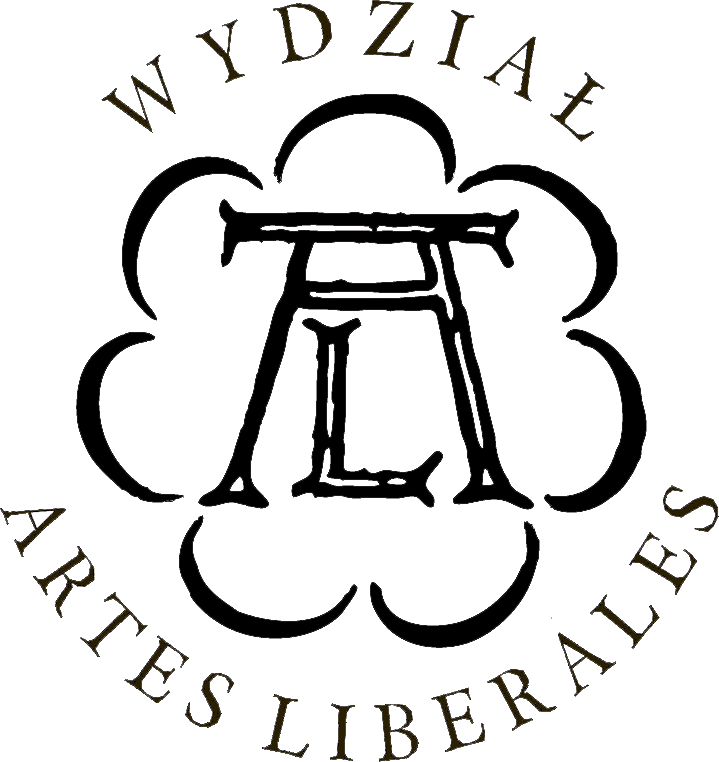
Atheism Revisited
International Conference
Techno-Humanities Lab
25-26 October 2017
Faculty of “Artes Liberales”
University of Warsaw
Conference programme
The conference programme is available for download in PDF format here.
The conference will be closed with the panel discussion on the status of atheism in the era of Donald Trump, Viktor Orban and Jarosław Kaczyński. Check the preview of the discussion on Atheism Today.
Book of Abstracts
All of the abstracts for the papers that will be presented during the conference are available in PDF format. Please download it here.
Call for papers
During the conference we would like to discuss both the concept of atheism and the atheism of thinking. The word “atheism” assumed different meanings throughout history, it has been used as a political weapon and as a strictly theoretical declaration, it appeared at the core of some philosophical projects and at the margins of others, it has been combined with authoritarianism and with democracy, it has been perceived as utopian or as the only possible realism. While in the social life of the West it seems to occupy a hegemonic position, its philosophical implications and perhaps even the necessity for a larger theoretical context has not yet been fully addressed.
In particular, we would like to consider the possibility of thinking without the concept of God. We are going to ask, is the concept of God an indispensable condition for thinking, i.e., its unconscious category? If so, we might suspect that atheism as a philosophical position is a complicated one, requiring further explanation and not to be taken for granted, even in times of “generalised facile atheism”.
In a more political context, we need to address the idea of democracy as an atheist project and scrutinize the implications of the erasure of God from the political order. We should ask again, is democracy the only possible implication of politicized atheism? If not – how does absolutism find its way into atheist political contexts and does it require political theology to succeed?
We would particularly like to rethink the following issues:
(1) Why did Spinoza not simply abandon the idea of God as a false idea? What is the “atheism of the concept”?
We believe it is worth to return to the relationship between three concepts: atheism, pantheism and deism. Spinoza-the-atheist wrote and thought about God far more, than about anything else. Should we follow him, and scrutinize the implications of theism, pantheism and deism in the context of contemporary post-Spinozean theory? What is “positive atheism” today?
Gilles Deleuze, when wondering if there is a Christian philosophy, answers: theological thinking only creates concepts on the grounds of its own atheism. It is atheism, and not religion, that creates concepts. Thus, Spinoza had to become an atheist to create concepts – including the concept of religion. For philosophers, the very “concept of atheism” is also problematic. It is surprising that some of the contemporary discussions concerning the philosophy of Jacques Derrida concentrate on “alleged atheism” or “uncertain messianism”, or finally “radical atheism” (Martin Hägglund) of the author of Of Grammatology. The issue of atheism is also crucial for theorizing democratic political power. How is democracy atheist? Does absolutism need religion? These questions, important in the context of theoretical projects of Carl Schmitt, Jürgen Habermas, Jacques Derrida and Giorgio Agamben, also return to atheism as conceptual strategy.
(2) What is a post-atheistic age? Is the negation of God also the negation of “the place where God used to be”?
Is it the same as a post-secular age? Does Marx's doctrine go “beyond atheism” and was Kołakowski right with his emphasis on the importance of the remnants of Christianity in Marxism? Or is Baczko and Benjamin right, that it is in capitalism, that religion finds its immediate continuation? Atheism understood as a simple negation of the idea of God, does not seem to fulfil its own premises, always leading to a re-institution of Man as the new absolute being or the new absolute power. In capitalism on the other hand the ideas of property, be it material or intellectual, gains the absolute power as premises of the social order. Is there an atheist social order? Do we find learn about it from the experiences and emancipation of the excluded, as Benjamin suggested? Or do we find it in the social revolution of the subaltern, as Gramsci and Spivak seem to argue? Is democracy an answer to religion?
Were Bloch, Adorno and others right and do we need utopia in secular times? This place, once occupied by God, is not nothingness, its perhaps a “no-place”, but not an empty space. Atheism only abolishes the “hypostasis of God”, but not the “space of his influence”. Ludwig Feuerbach was already aware of this, when he wrote that if God was created in the image of man, then man, when he learns about God in his various forms, only learns about himself. But Fourier, Bloch, even Barthes show, how this space can and should be imagined, Adorno on the other hand, following Kant, proves the necessity of utopia as a condition of thinking. Foucault, Haraway and Rauning on the other hand open spaces of “conditioned utopia” - heterotopia, dream and institutions of the common. Is any of those possible without atheism?
(3) To what form of atheism should we remain faithful today? Is antihumanism the only solution?
Throughout history, atheism seems to be as ambiguous as the belief in God. It may stem from scientific reflection on nature, political strife against organised religion (i.e., the Church), or it might reflect moral decay, in which not believing in God and the immortality of the soul is a product of contempt towards all moral values, linked in the social consciousness with religious beliefs in the effect of their long-term control over the intellectual life of the society. In such a situation “atheism” is only another name for the aristocracy of privileged spirit, which is an expression of a certain type of morality and possibly also social/class position. Aside from “positive atheism” and “social atheism”, which would indicate an intuition of human freedom, we should also note a form of atheism common to the thought of Lucretius, Marcus Aurelius, Schopenhauer and Jaspers, and Lee Edelman in the more contemporary times, which leaves open the question, if in the perspective of atheism the idea of the metaphysical defeat is justifiable? We ask: Is future possible? Does it have to be critical?
One of the most important implications of poststructuralism, i.e. of Michel Foucault, Gilles Deleuze, Jacques Derrida and Donna Haraway, is a non-anthropological, strictly atheistic thinking, i.e., not so much negating God, as verifying the possibility of thinking “without the concept of God” or “outside the concept of God” and all its doppelgängers (or spectres)? Is antihumanism an exercise in freeing thought from a certain category of the intellect or an idea of reason, of which, according to Kant, is its immanent and unalienable part? Is antihumanism an atheism?
Abstracts
This is an interdisciplinary conference, focusing on philosophy, but not reduced to it – we invite theoretical contributions and historical, literary or clinical case studies on these and related themes from philosophers, sociologists, psychoanalysts, literary theorists, historians, anthropologists, and others. Presentations are expected to take 20 minutes. Another 10 minutes is planned for discussion.
Abstract submission is now closed.
Organisers
Techno-humanities Lab
Faculty of "Artes Liberales"
University of Warsaw
prof. dr hab. Szymon Wróbel (head)
dr Jacek Dobrowolski (IF UW)
dr Ewa Majewska
dr Katarzyna Szafranowska
dr Sebastian Szymański
dr Krzysztof Skonieczny
mgr Jarosław Kopeć
mgr Krzysztof Pacewicz
Registration
A participation fee, which includes two shared dinners, will be 400 PLN (Polish zloty), if transferred before 30 July 2017 to the bank account of the Faculty of "Artes Liberales", or 500 PLN right before the symposium.
Data for bank transfer: Bank Millennium. IBAN: PL 54 1160 2202 0000 0000 6084 9484. Swift code: BIGBPLPWXXX.
Please write the word “atheism” in the title field of the transfer.
Fees must be sent by bank transfer/international bank transfer. Your participation is only confirmed once we have received your completed registration form as well as your payment. Additional information will be distributed after your abstract has been accepted or after the programme has been finalized.
Opening Address
Jerzy Axer, Robert Sucharski, Szymon Wróbel (WAL UW, Warszawa)
Speakers
Julian Baggini (freelance writer/co-founder of “The Philosophers’ Magazine”), Towards a Coalition of the Reasonable: Beyond Atheism v Religion
Daniel C. Barber (Pace University, USA), Atheism of No-One
Jacek Dobrowolski (IF UW, Warszawa), Atheism and Modernity
Andrzej Gniazdowski (IFiS PAN, Warszawa), Karl Marx’ Idea of the ‘Positive Abolition of Religion’ and the Islamic Question
Mateusz Janik (GSSR, Warszawa), Atheism and Power in Early-Modern European Descriptions of China
Gregg Lambert (Syracuse University, Kyung Hee University, Western Sydney University), On the Dual Horizon of the Death of God
Adam Lipszyc (IFiS PAN, Warszawa), The Visible Absence of Color. The Whiteness of the World and the Troubled Atheism of Herman Melville
Ewa Majewska (WAL UW, Warszawa; ICI, Berlin), The Grammars of the Weak. On Refrain, Rehearsal and Resistance
Patrick O’Connor (Nottingham Trent University, Ireland), Nietzsche and The Death of Atheism
Janusz Ostrowski (IF UW), Secularization – The Eternal Return of Aporias
Monika Rogowska-Stangret (Instytut Filozofii UW), Meeting the Future Halfway - Revisiting the Ethics of Care in Feminist New Materialisms
Tadeusz Sławek (UŚ, Katowice), “Bleak Liturgies”. How (not) to Speak About God
Krzysztof Skonieczny (WAL UW, Warszawa), “We Are Still Pious”. On the Hard Problem of Atheism
Katarzyna Szafranowska (WAL UW, Warszawa), On the Atheistic Impasse of Jewish Feminist Theology
Agata Tymczyszyn (UJ, Kraków; WAL UW, Warszawa) The Orphic Myth of Zegreus-Savior Devoured by Tytans and the Idea of Original Sin in Philosophy of Shakespeare, Freud and Nietzsche
James Williams (The Alfred Deakin Institute for Citizenship and Globalization, Deakin University), Signs of atheism: atheism as sign
Szymon Wróbel (WAL UW, Warszawa), Beyond Residual Atheism or Atheism in Favour of Philosophy
Venue
College of "Artes Liberales"
University of Warsaw
ul. Dobra 72
00-312 Warszawa
Media patronage
Image: Illustration from 1911 Encyclopædia Britannica, article BASILICA. Fig. 20.—Plan of church of the Nativity, Bethlehem. 1, Narthex; 2, nave; 3, 3, aisles. Encyclopædia Britannica, 1911. Image in public domain coming, from Project Gutenberg archives (Wiki).



